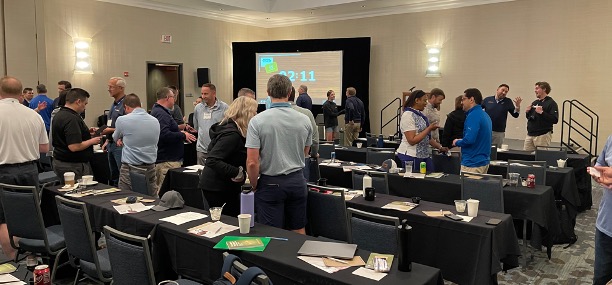Effective leadership is essential for the success of any organization, as it plays a crucial role in guiding and motivating employees towards a shared vision and goals.
A good leader is able to inspire and empower their team, foster collaboration and creativity, and drive results.
Here are some of the key characteristics and traits of effective leaders:
Solving Problems: A good leader is able to identify and address problems in a timely and effective manner. This requires strong analytical and decision-making skills, as well as the ability to gather and analyze relevant data and information. A leader should also be able to think critically and creatively to come up with innovative solutions to complex problems.
Having Self-awareness: A self-aware leader is able to recognize and understand their own strengths, weaknesses, and biases, and how these may impact their decisions and interactions with others. This self-awareness allows a leader to be more authentic and genuine, which can foster trust and credibility with their team.
Providing feedback: A leader who is able to provide clear and constructive feedback can help their team members improve and grow. Feedback should be timely, specific, and focused on the behavior or performance that needs to be addressed, rather than the person. A good leader will also be open to receiving feedback from their team, as this can help them learn and adapt to better serve their team.
Demonstrating Emotional intelligence: Emotional intelligence is the ability to recognize and understand one’s own emotions and the emotions of others, and to use this awareness to manage relationships effectively. A leader with high emotional intelligence is able to empathize with their team, build strong relationships, and effectively manage conflict. This can lead to increased team cohesion and productivity.
Staying Coachable: A leader who is able to adapt to change and uncertainty is essential in today’s fast-paced and constantly evolving business environment. This requires a willingness to learn and try new approaches, as well as the ability to pivot and adjust when necessary.
Creating an exceptional workplace culture: A positive and supportive workplace culture can have a significant impact on employee engagement, motivation, and retention. And a truly GREAT workplace culture is ALWAYS the result of effective leaders.
To build or sustain a more positive and profitable culture, there are five areas you will need to focus on – Goals, Relationships, Expectations, Accountability, and Thanks.
The impact of each of those key ingredients is described more fully in my book, Rapid Teamwork, which is an entertaining business parable that shares the process for transforming your group into a more focused and productive team.
In conclusion, effective leadership involves a combination of various skills and qualities, including problem solving, self-awareness, providing feedback, building an exceptional workplace culture, emotional intelligence, vision and strategy, and adaptability.
A good leader will be able to demonstrate these skills and qualities in their interactions with their team, and be able to inspire and motivate them towards success.
Curious to know how effective YOUR leadership is, or how exceptional YOUR workplace culture is currently?
Take THE EFFECTIVE LEADERS WORKPLACE CULTURE SURVEY to find out!
– – – – –
Sean Glaze delivers engaging conference keynotes and interactive team building events that help healthcare and education leaders build more positive and profitable cultures.
Sean is also an author, and each of his four books, The Unexpected Leader, Rapid Teamwork, The 10 Commandments of Winning Teammates, and Staying Coachable, are entertaining parables with powerful take-aways for team growth and leadership!
What issues are YOU dealing with that would disappear if you could build a team culture that inspired connection, accountability, and a team-first attitude?
You can contact Sean at:

Use Connection Chats to Engineer Better Collaboration Across Every Division on Your Team

Effective Leaders Build Trust and Teamwork by Focusing on Leadership Development

The Power of a Sticky Culture in Boosting Organizational Performance and Retention

Are Your Team Standards Seen as Suggestions or Recognized as Requirements?
Books and Resources for Leaders
Check other blog
Use Connection Chats to Engineer Better Collaboration Across Every Division on Your Team
Effective Leaders Build Trust and Teamwork by Focusing on Leadership Development
The Power of a Sticky Culture in Boosting Organizational Performance and Retention
Contact Sean

Connect with Sean

Tell Sean About
Your Event
Tell Sean About
Your Event
"*" indicates required fields











